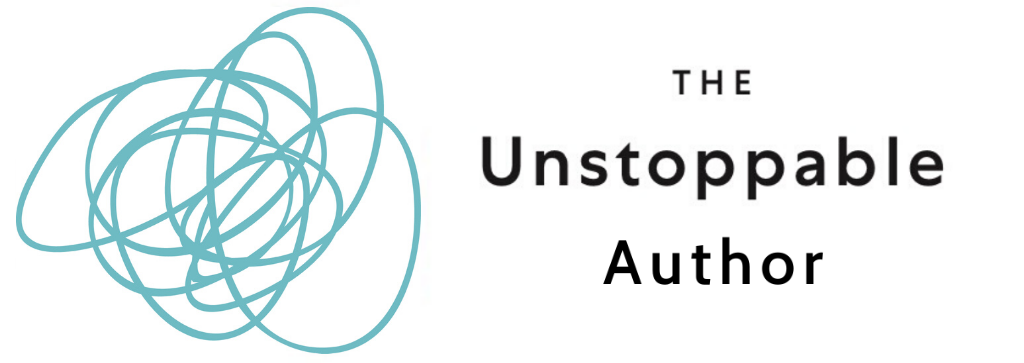Author Nicola Jackson and life coach Teresa Wilson reveal how to make a start on your new writing project when you don’t know what you’re doing.
So, you’re ready to start the first draft of your story or novel. You’re full of ideas and excited to begin. Hurrah!
Except, also, boo! Because it is often just when we’re excited to start that the Control Freak Gremlin pops up, shrieking, “Starting, are you?! Well, I hope you know what you’re doing!”
And just like that, we doubt ourselves.
Because, no, we don’t know what we’re doing. We don’t know exactly what we’re going to write in this session we’ve made time for. And we were about to do it anyway. What the hell were we thinking?!
New writers are particularly vulnerable to the Control Freak, since they’ve not yet become familiar with their creative process and so can be persuaded that all other writers in the world are confident, certain and assured before they put pen to paper or fingertips to keyboard. But even experienced writers are fair game – Control Freak will tell them, “Oh, you could write this one MUCH quicker than last time if you’d only work out exatly what you’re doing first!”
Whatever level of experience you have, this Gremlin’s only job is to make you believe you’re not ready yet, but (crucially) that you could be if you just prepared a little more. And why? Because if it can convince you that you need to plan your creative route minutely and exactly ahead of time, making sure you have all the right equipment and are deeply knowledgeable about anything and everything that might happen along the way…well, chances are you’ll spend so long trying to be ‘ready’, you’ll never actually start.
WHY THE CONTROL FREAK GREMLIN IS SO PERSUASIVE
So, we understand that this Gremlin will attempt to make us believe that we’re simply not equipped to write this story. But why does it work so effectively?
To answer this, we need to look at how we have been conditioned to behave in our everyday adult lives. Creativity is the act of making something out of nothing. Often, there’s no five-point plan. No agenda. No certainty. No mastery. At least, not in the very early stages. Even writers who like to plot their books out in great detail will be conscious that they must be flexible with those limitations and restrictions to get the best results.
We believe that true creativity utilises more of us than just our brains. We think that the subconscious loves to get stuck in, too, which means we have to trust that even when we don’t consciously know what we are doing, somehow there is a sort of knowing going on. A kind of plan. Just one we are not yet aware of and can’t control.
It’s messy, yes. And a little bit unnerving. And it is certainly not the height of efficiency! And yet, in our experience, creativity can be at its most thrilling when you’re stumbling in the dark, working things out as you go. This is a free and almost childlike state of pure creative inspiration and invention, from which amazing ideas can blossom.
The problem is, most of us have been avoiding this state of free-fall cluelessness for a very long time. As adults, we’re supposed to know what we’re doing. As employees, as bill-payers, as parents, as responsible citizens, we have to be competent. I mean, you can hardly turn up to work and say to your boss, “Today’s board meeting? Oh, I thought I’d just start talking and see what happens!”
We’ve spent years practising being sure about things and now creativity is asking us to just give a metaphorical shrug and say, “I dunno!”
PLOTTING AND PANTSING FOR NEWBIES
A quick side note on planning when it comes to first drafts. Some people are ‘plotters’ – they like to have the next scene, the next chapter or the entire story/book planned out before they make a start.
Some people are what’s known in the writing community as ‘pantsers’ (because they fly by the seat of their pants). These writers don’t know where their story is going to take them, and they don’t want to. They just follow their intuition, go where their creativity takes them and eventually end up with a completed story.
Just as with everything in writing, there are extreme plotters and extreme pantsers and everything else in between. Some people plot loosely, or a dozen chapters ahead, but are happy for their story to take a diversion if that’s where it wants to go.
Some writers will perfect every sentence before they move onto the next. Some orchestrate every twist. Some are as surprised by their twist as the reader eventually will be. There is no right or wrong way, there’s just your way – the way that gets your story out into the world to the best of your ability.
But if you think of yourself as a planner, then look back and realise that you’ve done the research and planning for half a dozen books, but written none of them, it’s worth remembering that to be a writer you do eventually have to do some writing. And if you consider yourself a pantser, but never return to your manuscripts to get them into shape, then do bear in mind that, as you move through the editing stages, that free-flowing creativity will need to give way to a more structured approach if you’re going to produce a piece of work people want to read. Got it? Good! Now back to the Gremlin…
GETTING PAST THE CONTROL FREAK GREMLIN
All of the Control Freak Gremlin’s methods aim to make us feel so overwhelmed that we eventually find it’s just easier to give up on the whole idea of writing. But there’s one simple way to get around the Gremlin’s myriad tricks and that’s to set yourself a routine and stick to it.
The Magic of Routine.
Putting some structure into your writing life can really help free up your creativity. And here’s why: Decision making takes energy. Your brain has limited capacity. It likes shortcuts. So, if you make a decision once and commit to it, you free up more capacity for your creative endeavour. Also, scheduling pacifies the Control Freak Gremlin. If you’re a new writer, you’re likely to be vulnerable to the Control Freak Gremlin’s anguished cries about how we need to plan every single thing. While this obsession with knowing what’s going to happen is not always helpful in the creative sphere, you can put it to use when it comes to organising your time.
Our creative self is rather like a two-year-old: great at slapping paint on a cavass without self-consciousness, but not particularly adept at timetabling. So why not get your adult self to give your creative self a time slot for writing? Get your diary and mark out your designated writing time. And then do it. No questioning, no over-thinking, no decision-making involved. You just do it, because you’ve been told to do it by your adult self.
Planning writing sends a message
By putting that writing session in the calendar, you’re also sending an important message to yourself and to the people around you that writing is important to you. Look around you. I bet there are people in your life who are making damn sure that they get their time to watch sport, go to the gym, or do whatever else it is that makes them them.
Well, hold on a minute. You’re a writer. Writing makes you you. But only you are going to insist that you do it. Because, to be perfectly blunt, no one else cares enough about your creativity to make sure you do this writing. Indeed, as nice as your friends and family no doubt are, they might even prefer it if you didn’t write, when you could be doing something that contributes more to their life and happiness instead. (And also, in some instances, so that you don’t start reminding them about their own creative selves that they’ve long since buried.)
So, don’t wait for a cheerleader or a boss to make you do it. No one is coming. You are it. You have to prioritise it. You have to care.
What should your routine look like?
This is your project, and so the answer to that question is entirely up to you. It might be half an hour daily, an hour weekly, or every other Saturday. You might be a morning lark or a night owl, writing when your kids/partner/friends/the world is sleeping. You might write in bursts for weeks at a time and then do nothing for a month. You may have to experiment for a while until you find the writing routine that brings out the best in you, and that most suits your life and your creative temperament.
Just know that the more you commit to showing up at the page, the more likely it is your creativity will show up too. After all, you’ve proven yourself to be a reliable partner in this writing business, so why wouldn’t it?
And when your Control Freak Gremlin starts worrying away at you again, telling you that you don’t know what you’re doing, you can simply reply, “Sure I do. I’m turning up at 3pm on Friday. So, shush.” The chances are, that’ll shut your Gremlin right up.
This is an abridged excerpt from Seven Creative Gremlins: Write your way through doubt and fear to claim your creative life by Nicola Jackson and Teresa Wilson. Find it here for £1.99 ebook/£6.99 paperback.
There are many more Gremlins to look out for, from persuasive Procrastinator to haranguing Hyper-Critical, from terrorising Tyrant to snooty Too-Cool-For-School. Want to find out which Gremlin is derailing your writing journey and how to get past it? Take this fun 1 minute quiz!
How to calm the Control Freak Gremlin


